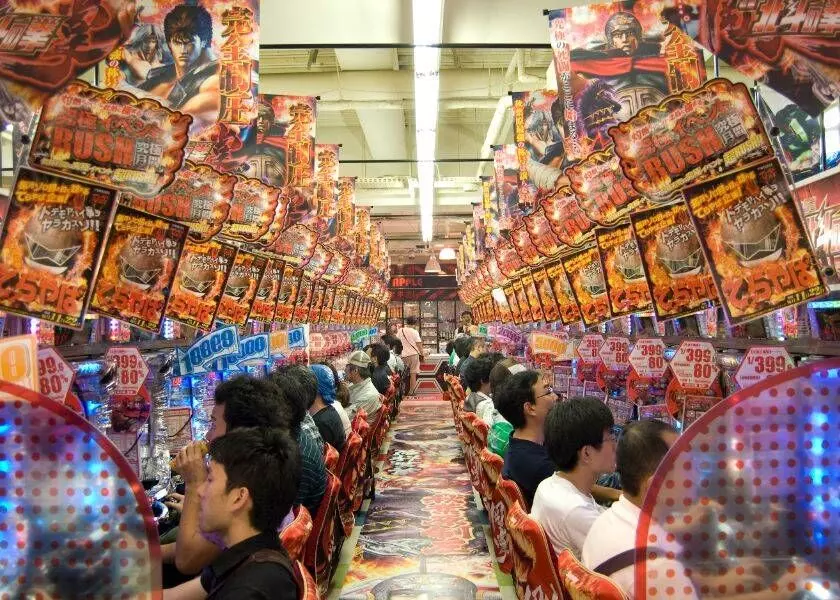The Legal Maze of Gambling in Japan: Where Does the Future Lead?
image for illustrative purpose

Japan’s relationship with gambling is a fascinating study in contrast. On one hand, the country is known for its thriving pachinko industry, a legal gray area that draws millions of players each year. On the other hand, Japan has some of the strictest gambling regulations in the world, particularly when it comes to online casinos. As Japan prepares to open its first land-based casino in 2030, questions about its legal stance on gambling are growing louder. How can a country with such rigid gambling laws make room for casinos, and where does this leave the future of online gambling? This article explores the legal maze of gambling in Japan and where the future might lead.
The Historical Context of Gambling in Japan
Gambling has long been part of Japanese culture, though it has historically been both legally and socially restricted. Traditional forms of gambling, such as dice and card games, were popular in the Edo period but were heavily regulated or outright banned. The cultural view of gambling has always been mixed—viewed as both a vice and a source of entertainment, but always under tight control.
In modern Japan, pachinko has risen as the dominant form of gambling, albeit one that exists in a legal loophole. Pachinko parlors dot nearly every city in Japan, drawing millions of players each year. Legally classified as an “amusement game,” pachinko skirts gambling laws because players technically win prizes, not cash. However, these prizes are often exchanged for money at separate venues, creating a system that many consider legalized gambling in all but name.
Culturally, gambling is still seen as somewhat taboo, often linked to addiction and criminal activity. Yet, the popularity of pachinko and Japan’s decision to legalize its first casino show a society that is slowly shifting its attitude toward gambling.
Current Gambling Laws and Regulations
Japan’s legal stance on gambling is strict and complicated. Under Japan’s Penal Code, most forms of gambling are illegal, with a few exceptions. Legal gambling is limited to government-controlled activities, such as horse racing, boat racing, and the national lottery. These forms of betting are tightly regulated, with profits often redirected to public projects.
Illegal gambling remains harshly penalized, with offenders facing imprisonment or heavy fines. This includes not only traditional forms of gambling but also modern phenomena such as online casinos.
However, there are loopholes and exceptions. Pachinko is the largest and most notable one, but other quasi-legal forms of gambling also exist. For example, mahjong parlors and underground betting on sports often operate in legal gray zones, navigating complex regulations to stay under the radar of law enforcement.
The 2030 Casino and Integrated Resort Law
The legalization of land-based casinos in Japan came as a surprise to many, particularly given the country’s stringent anti-gambling stance. In 2016, the government passed the Integrated Resort (IR) Law, paving the way for the creation of large-scale casino resorts. The first of these is slated to open in 2030.
The primary driver behind this move is economic. Japan aims to bolster its tourism industry by attracting foreign visitors and competing with casino hubs like Macau and Singapore. These Integrated Resorts (IRs), which combine casinos, hotels, shopping malls, and entertainment venues, are seen as a way to boost revenue and create jobs.
However, the decision has not been without controversy. Opponents argue that casinos will lead to increased gambling addiction, organized crime, and other social issues. Public sentiment is divided, with many still uncomfortable with the idea of legal gambling. Yet, the economic promise seems to have won out, at least for now.
Online Gambling and Its Strict Regulation
While Japan is opening its doors to land-based casinos, it remains unclear on the legality of online casinos. Despite the absence of explicit regulations against these offshore platforms, many Japanese citizens participate in online gambling, often accessing foreign sites that cater specifically to them.
However, Japanese authorities are becoming increasingly concerned about the rise of online gambling. Many online casinos are entering the Japanese market day by day. According to the list of all available online casinos in Japan on onlinecasinojapan.com, over 80 different online casinos are targeting Japanese players."
Rather than focusing on shutting down these offshore platforms—over which they have limited jurisdiction—they have begun to target individuals who promote online casinos. A notable recent strategy has been the arrest of online casino influencers, individuals who promote these gambling platforms to a Japanese audience through social media and other digital channels. These influencers play a significant role in attracting players to offshore casinos, and law enforcement is trying to curb the practice by making high-profile arrests.
Although there is no direct law against participating in overseas online gambling, the Japanese government is tightening enforcement through these indirect measures. This reflects the country’s broader concerns about gambling addiction and the potential for financial crimes associated with online gambling, even as the legal system remains ambiguous about the practice itself.
The Future of Gambling in Japan
As Japan prepares to open its first casino in 2030, the future of gambling in Japan remains uncertain. The success of the casino could signal a shift in Japan’s overall approach to gambling, perhaps even leading to a loosening of online gambling laws. With the rise of digital technologies and the global trend toward online gambling, Japan may eventually find itself reconsidering its current position.
At the same time, the government is likely to remain cautious, particularly regarding the social and moral concerns surrounding gambling. Japan has always maintained a careful balance between economic growth and public welfare, and gambling will likely continue to be tightly regulated, even as the industry expands.

